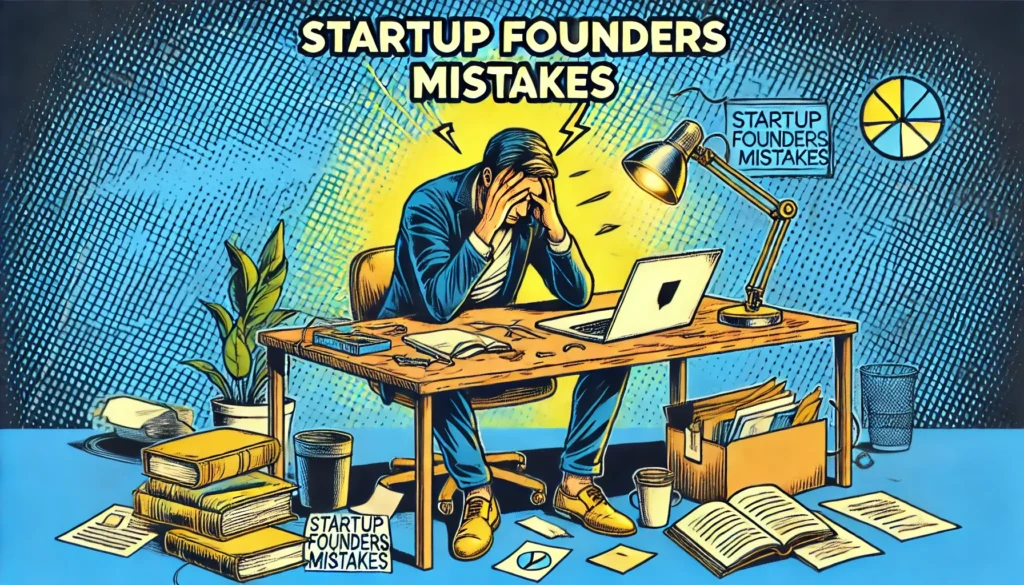Avoiding Early-Stage Startup Pitfalls – Expert Resources for First-Time Founders

Are you a first-time founder trying to figure it all out?
If so, you’ve likely already realized that starting a company is full of unknowns—and making the wrong move early on can be costly. From lack of planning to going to market too soon, early-stage startup pitfalls are real and can derail your dream before it even begins. But here’s the good news: these pitfalls are totally avoidable with the right guidance, tools, and mentorship.
In this article, we’ll break down the most common early-stage startup pitfalls you’ll want to steer clear of—and more importantly, the exact resources and advice that can help you overcome them. Plus, you’ll discover how FoundersMax offers startup mentorship and expert backing to help you move faster and smarter on your founder journey.
Understanding Early-Stage Startup Pitfalls
The initial stages of a startup are critical. Decisions made during this phase can have long-lasting impacts. Common pitfalls include:OnStartups
- Lack of Market Research: Failing to understand the target audience can lead to products or services that don’t meet market needs.
- Inadequate Financial Planning: Mismanaging funds or underestimating expenses can quickly deplete resources.
- Neglecting Mentorship: Overlooking the value of experienced guidance can result in repeated mistakes and missed opportunities.
- Scaling Too Quickly: Expanding operations without a solid foundation can strain resources and compromise quality.
Essential Resources for First-Time Founders
To mitigate these challenges, first-time founders should leverage the following resources:
1. Mentorship and Advisory Networks
Engaging with seasoned entrepreneurs and industry experts provides invaluable insights. Mentors can offer guidance on business strategy, product development, and market entry. Platforms like FoundersMax specialize in connecting startups with experienced mentors.
2. Comprehensive Business Planning Tools
Utilizing tools like the Business Model Canvas or Lean Startup methodology helps in structuring business ideas and testing assumptions. These frameworks encourage iterative development and customer feedback integration.
3. Financial Management Software
Implementing accounting and budgeting tools ensures better financial oversight. Software like QuickBooks or Xero can assist in tracking expenses, forecasting revenues, and managing cash flow.
4. Market Research Platforms
Understanding market trends and customer preferences is vital. Tools like SurveyMonkey or Google Trends can aid in gathering data and analyzing market dynamics.
5. Legal and Compliance Resources
Ensuring legal compliance from the outset prevents future complications. Resources like LegalZoom or Rocket Lawyer offer accessible legal assistance for startups.
The Role of Mentorship in Startup Success
Mentorship plays a pivotal role in guiding startups through uncharted territories. Experienced mentors can:
- Provide Strategic Direction: Helping founders set realistic goals and develop actionable plans.
- Offer Industry Insights: Sharing knowledge about market trends and potential challenges.
- Expand Networks: Connecting founders with potential investors, partners, and customers.
- Enhance Decision-Making: Offering perspectives that lead to more informed choices.
Engaging with mentorship programs, such as those offered by FoundersMax, can significantly increase a startup’s chances of success.
Avoiding early-stage startup pitfalls requires a combination of awareness, preparation, and the right support systems. By leveraging essential resources and seeking mentorship, first-time founders can navigate the complexities of the startup world more effectively. Remember, while challenges are inevitable, being equipped with the right tools and guidance can make the journey smoother and more rewarding.


